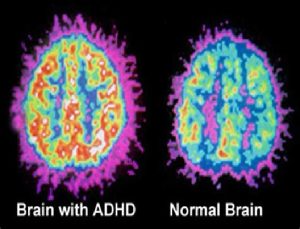Please take this article with a grain of salt. The language here used may offend a little, “Borderlines” or “demon” for example however there are a few things David does say I think are very key to helping understand the concept of “object permanence”. If you want to maintain a relationship with someone who has challenges with emotion regulation (I like to refer to BPD as this) that you need to maintain contact. This means initiating contact between their communications that just touches base. This does not mean getting together in person or talking on the phone for hours. It could be just a short text. For example “Hi, I’m thinking of you today and wondering how you are doing?” There needs to be some connection even if it’s just a few short texts at least every other day. Ignoring or waiting for them to communicate especially after any conflict will send the message that you don’t care and don’t understand the kind of pain that you are inflicting on them. It seems that those with BPD may not have developed this concept of object permanence because when you are “out of sight” for too long than they believe that you have actually left them (you have died or are just gone forever). Just like a young child whose mother has left the room is “out of sight” a child may cry and scream as their sense of self is not developed. We know that in some ways persons with BPD are less mature (this does not mean that in many ways they are in fact mature just that there may be this function that is underdeveloped for some reason (likely something to do with the constant existence in “emotion mind” where the brain’s amygdala is hyper aroused much of the time perhaps not allowing for the maturation of certain functions.) If you are in a relationship with someone with BPD just know this is true. If you don’t communicate for days and then when you do, you are met with passiveness, “I’m fine”, or anger, this is likely why. Perhaps, you are yelled at with “I hate you! or “I never want to see you again!” You can also try saying things like “We will see each other on Friday” (a few days from now) and then we will do X.” or “I look forward to seeing you next week for our X.” This will help greatly for your lovely sensitive beautiful loved one to know that you are still around. When I work with families in my Compassion in Chaos Family group and I tell all of them to initiate a text every day, a message like above “Have a nice day today” or “Wishing you luck today for your X.” they always come back the next week in awe that it worked so well! Try it, I promise it will make a huge difference in your relationship whether you are their mother, father, partner, adult child, or sibling. It’s all the same. Email me, julie@dialecticalliving.ca and let me know how this worked and if you want to be on my podcast to talk about it that would be superb! We need to spread the word on how to love and reduce the pain of relationships for our wonderfully, sensitive, beautiful people in or lives. They deserve it!
Written above by Julie Hayden, MSW, RSW
David R. Schools · Follow Program Director M. Div. CASAC at Outpatient Rehabilitation (2011–present)What happens when you go no contact with a borderline?
Eww… not good… I lived, worked and counseled with Borderlines for 9 years. Borderlines that I worked with almost exclusively were sexual abused… terrible! I was often amazed at the health they did have. I learned and studied to better relate and counsel. I learned that Borderlines (along with many other character disordered people) grow up in chaos and abuse. They learn to deal with trauma by developing a soul that is what I will call “environmentally reactionary” . Out of necessity they have developed acute skills to survive trauma and chaos rather than have had time to develop an independent and healthy self. To put it perhaps in an extreme … there is no self! They therefore are trained to depend on perpetual external drama in order to prevent something far worse from occurring… experiencing “nothing”… dreadful emptiness. This is another reason for self harming and particularly “cutting”. Self-harm allows the relieving comfort of external pain, rather than intolerable emptiness. Many experience suicidal ideation on a regular basis.
So, how does all of that relate to “no contact”. Another characteristic of Borderlines is “splitting”… idealizing or demonizing relationships. If you are there for them , affirming them , reflect back “love”… you are idealized… almost worshipped. If you criticize or abandon (maybe you were just late) you are demonized. No contact= abandoning= you are a demon. Borderlines also have no ability to retain any “constancy” in a relationship. They can not build trust. It evaporates when the relationship is out of sight. No contact=out of sight= no relationship, no trust… “cutting”… relief.
I know I’ve generalized here. Borderlines , like all of us, come in many flavors and degrees. It is said that “Borderlines are just like everyone else… just more”.
Written by David R. Schools





